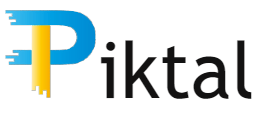
In recent years, freelancing has become an increasingly popular career choice for those seeking flexibility, autonomy, and a better work-life balance. With the rise of digital platforms and remote work opportunities, the freelance market is more accessible than ever. However, diving into freelancing without proper preparation can lead to challenges. In this blog post, we’ll explore the pros and cons of freelancing and provide valuable tips on how to start your freelance journey.
Pros of Freelancing:
- Flexibility: One of the most significant advantages of freelancing is the ability to set your own schedule. You can choose when, where, and how much you want to work, allowing for a better work-life balance.
- Autonomy: As a freelancer, you are your boss. You have the freedom to select the projects you work on and the clients you work with, giving you greater control over your career path.
- Diverse Work: Freelancing offers the opportunity to work on a variety of projects for different clients, allowing you to expand your skills and knowledge in various areas.
- Earning Potential: Freelancers often have the potential to earn more than traditional employees, especially if they specialize in high-demand skills or niche markets.
Cons of Freelancing:
- Income Stability: Freelancing income can be unpredictable, as it depends on the availability of projects and clients. It’s essential to budget and save for leaner months.
- Isolation: Freelancing can be a lonely profession, as you may not have coworkers or a team to interact with daily. It’s important to find ways to stay connected, such as joining online communities or coworking spaces.
- Self-Discipline: Working as a freelancer requires a high level of self-discipline and motivation. Without a boss or set work hours, it’s easy to become distracted or procrastinate.
- No Benefits: Freelancers are typically responsible for their own benefits, such as health insurance, retirement savings, and paid time off.
How to Get Started as a Freelancer:
- Identify Your Skills: Determine what services or skills you can offer as a freelancer. Consider your strengths, interests, and experience.
- Create a Portfolio: Develop a portfolio showcasing your work and expertise. Include samples, testimonials, and relevant experience to attract potential clients.
- Set Your Rates: Research industry standards and set competitive rates for your services. Consider your experience, skills, and the value you provide to clients.
- Market Yourself: Use online platforms, social media, and networking events to promote your services and connect with potential clients. Highlight your unique selling points and value proposition.
- Manage Your Finances: Keep track of your income and expenses, and set aside money for taxes and savings. Consider using accounting software or hiring a professional accountant to help manage your finances.
- Build Relationships: Focus on building long-term relationships with clients by delivering high-quality work, being reliable and professional, and communicating effectively.
Conclusion:
Freelancing offers many benefits, such as flexibility, autonomy, and diverse work opportunities. However, it also comes with challenges, such as income instability and self-discipline requirements. By understanding the pros and cons of freelancing and following these tips, you can start your freelance career on the right foot and achieve success in the ever-evolving freelance market.

Comments